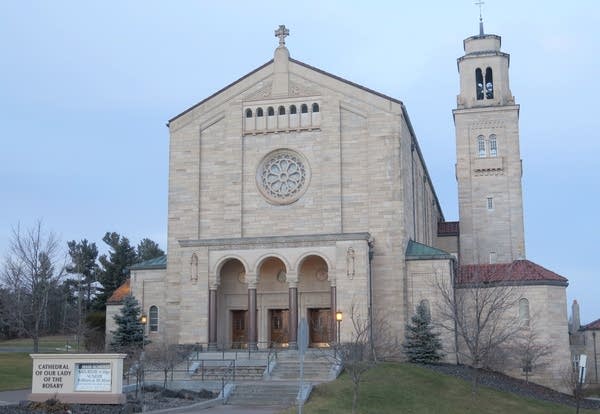Duluth diocese files bankruptcy over sex abuse judgment

Cathedral of Our Lady in Duluth, Dec. 7, 2015. The Diocese of Duluth filed for bankruptcy protection Monday.
Dan Kraker | MPR News
Go Deeper.
Create an account or log in to save stories.
Like this?
Thanks for liking this story! We have added it to a list of your favorite stories.


